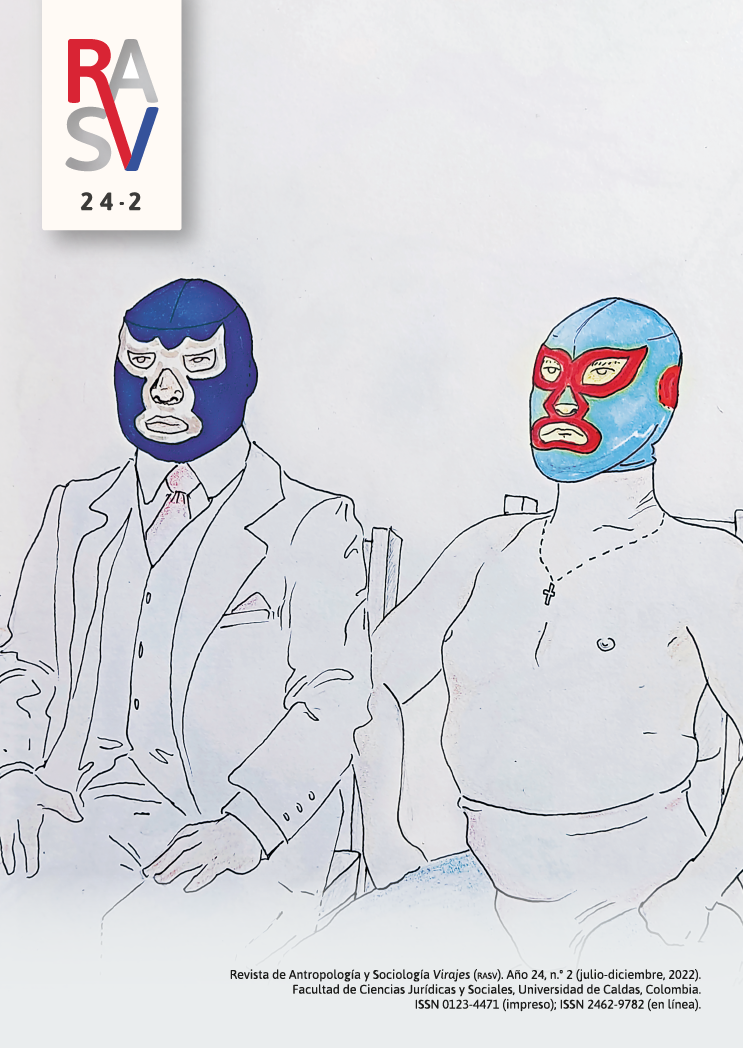Autores/as
Resumen
El objetivo de este ensayo es reflexionar sobre la antropología del malogrado David Graeber. Partiendo de un cuestionamiento a la separación entre sus obras académicas (de erudición antropológica y etnográfica) y sus obras políticas (en un lenguaje incisivo pero accesible a todo público), selecciono tres tópicos o fuentes de la reflexión graeberiana que dan cuenta de esa fútil división. De esta manera, examino sucesivamente los problemas relativos a la creatividad social, la imaginación y el placer político; tres temáticas en las que Graeber innovó tras haber dedicado buena parte de su energía personal, profesional y política a su tratamiento. Además de insertar dichas discusiones conceptuales en una lectura analítica crítica y sistemática de su obra, identifico discusiones conceptuales más acotadas o específicas que surgen de las mismas y dan cuenta de sus interrelaciones. En las conclusiones propongo que Graeber construyó una trascendencia propia frente a las jerarquías sutiles y discretas de la academia y la política del saber,
hiriendo sus dogmatismos sectarios de una manera original, irreverente y lúdica.
Palabras clave
Citas
Mauss, M. (1979 [1924]). Sociología y antropología. Tecnos.
Mead, M. (1993 [1939]). Adolescencia, sexo y cultura en Samoa. Planeta Agostini.
Pietz, W. (1993). Fetishism and Materialism: The Limits of Theory in Marx. En E. Apter y Pietz,
W. (eds.), Fetishism as Cultural Discourse. Cornell University Press.
Polanyi, K. (1976). El sistema económico como proceso institucionalizado. En Godelier (ed.),
Antropología y Economía (pp. 155-178). Anagrama.
Rancière J. (2006). El odio a la democracia (I. Agoff, Trad.). Ed. Amorrortu.
Stocking, G. Jr. (1982). A Franz Boas Reader: The Shaping of American Anthropology, 1883-1911.
University of Chicago Press.
Taussig, M. (1996 [1992]). Un gigante en convulsiones. El mundo humano como sistema nervioso
en emergencia permanente. Gedisa.
Turner, T. S. (1979). Anthropology and the politics of Indigenous peoples’ struggles. Cambridge
Anthropology, 5, 1-43.
Turner, T. S. (2003). The beautiful and the common: Gender and social hierarchy among
the Kayapo. Tipiti: The Journal of the Society for the Anthropology of Lowland South
America, 1(1), 11-26.
Turner, T. S. (2008). Marxian value theory: An anthropological perspective. Anthropological
Theory, 8(1), 43-56.
Wagner, R. (1981 [1975]). The invention of culture. University of Chicago Press.
Weiner, A. (1992). Inalienable Possessions: The Paradox of Keeping-While-Giving. University
of California Press.

 PDF
PDF
 FLIP
FLIP



















